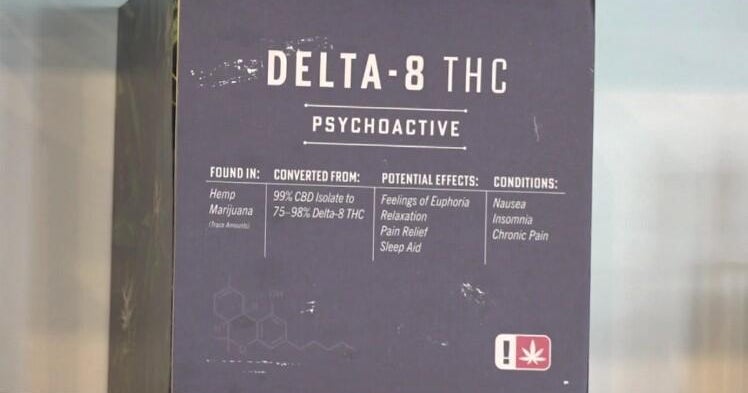California becomes first US state to ban 4 potentially harmful chemicals in food
California Governor Gavin Newsom has signed a landmark law aimed at banning red dye No. 3 and other potentially harmful food additives in consumer goods.
On Saturday, the Golden State became the first in the country to forbid the use of the ingredients found in many popular candies, drinks and more, according to the Environmental Working Group, a nonprofit environmental health organization that cosponsored the law with Consumer Reports.
Also known as the California Food Safety Act, Assembly Bill 418 — introduced by Assemblymembers Jesse Gabriel and Buffy Wicks in February — prohibits the manufacture, sale or distribution of food products in California containing red dye No. 3, potassium bromate, brominated vegetable oil or propylparaben.
Potassium bromate is added to baked goods to help dough strengthen and rise higher. In some beverages, brominated vegetable oil emulsifies a citrus flavoring, preventing separation. Propylparabens are used for antimicrobial food preservation.
Nearly 3,000 products use red dye No. 3 as an ingredient, including sweets such as Skittles, Nerds and Trolli gummies; protein shakes; instant rice and potato products; and boxed cake mixes, according to the Environmental Working Group's Eat Well Guide.
In his letter, the governor pointed to Skittles' availability in the European Union, calling it "demonstrable proof that the food industry is capable of maintaining product lines while complying with different public health laws."
Newsom's move brings the United States slightly closer to a food environment like that of the EU, where these chemicals are banned "due to scientific studies that have demonstrated significant public health harms, including increased risk of cancer, behavioral issues in children, harm to the reproductive system, and damage to the immune system," according to Gabriel's March news release.
"Signing this into law is a positive step forward on these four food additives until the United States Food and Drug Administration (FDA) reviews and establishes national updated safety levels for these additives," said California Governor Gavin Newsom in a letter to the California State Assembly Saturday.
Food safety in practice
The bill won't be implemented until 2027 — "significant time for brands to revise their recipes to avoid these harmful chemicals," Newsom added. "Californians will still be able to access and enjoy their favorite food products, with greater confidence in the safety of such products."
The National Confectioners Association, a trade organization based in Washington, DC, said in a statement that "Newsom's approval of this bill will undermine consumer confidence and create confusion around food safety" by acting independently of the FDA, and called on the FDA to weigh in on the topic.
Currently in the US, these chemicals can be used in foods because of a loophole in the FDA's Federal Food, Drug and Cosmetic Act that's known as the Generally Recognized as Safe, or GRAS, rule, which allows manufacturers to use the ingredients in a way or amount the FDA has previously determined to be safe.
Because of the size of California's economy, "this groundbreaking law may affect food across the country, not just in California, so all Americans will likely benefit from the ban," according to a news release from Consumer Reports. "It is unlikely manufacturers will produce two versions of their product — one to be sold in California and one for the rest of the country."
Until then, if you want to avoid consuming red dye No. 3, for foods you can check ingredients lists for "FD&C Red #3," and for medications, look for dyes in the "inactive ingredients" section.







